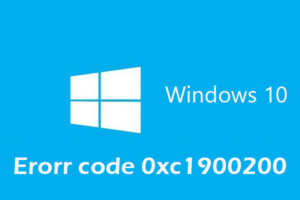-
Table of Contents
- The Impact of Microsoft Deprecating the Windows Cortana App
- Alternatives to the Windows Cortana App after Microsoft’s Decision
- Exploring the Reasons Behind Microsoft’s Decision to Deprecate the Windows Cortana App
- Future Outlook for Voice Assistants on Windows Devices after Cortana’s Deprecation
- Q&A
Microsoft deprecates the Windows Cortana app: Streamlining your digital experience.
Microsoft has recently announced its decision to deprecate the Windows Cortana app.
The Impact of Microsoft Deprecating the Windows Cortana App
Microsoft recently announced that it will be deprecating the Windows Cortana app, a move that has significant implications for both users and the company itself. This decision comes as part of Microsoft’s broader strategy to shift its focus away from consumer-facing AI assistants and towards enterprise solutions. While the move may disappoint some users who have come to rely on Cortana, it is a strategic decision that aligns with Microsoft’s long-term goals.
One of the key impacts of deprecating the Windows Cortana app is that it signals a shift in Microsoft’s AI strategy. The company has recognized that the consumer AI assistant market is highly competitive, with players like Amazon’s Alexa and Google Assistant dominating the space. By deprecating Cortana, Microsoft is acknowledging that it cannot compete effectively in this market and is instead choosing to focus its resources on areas where it has a stronger competitive advantage.
Another important impact of this decision is that it will likely lead to a decline in the usage and popularity of Cortana among Windows users. With the app being deprecated, users will no longer receive updates or new features, and over time, the app may become less reliable and less useful. This could result in users seeking alternative AI assistants, further eroding Cortana’s market share.
However, it is worth noting that Microsoft is not completely abandoning Cortana. The company will continue to integrate Cortana into its other products, such as Microsoft 365 and Windows 10. By doing so, Microsoft is leveraging Cortana’s capabilities in a way that aligns with its enterprise-focused strategy. This move allows Microsoft to capitalize on Cortana’s strengths, such as its ability to provide contextual information and assist with productivity tasks, in a business setting.
From a user perspective, the deprecation of the Windows Cortana app may be seen as a setback. Many users have grown accustomed to using Cortana for various tasks, such as setting reminders, checking the weather, or searching the web. With the app being deprecated, users will need to find alternative solutions for these tasks. Fortunately, there are numerous AI assistants available on the market, such as Alexa and Google Assistant, which can fill the void left by Cortana.
For Microsoft, the deprecation of the Windows Cortana app allows the company to reallocate resources and focus on areas where it can have a greater impact. By shifting its AI strategy towards enterprise solutions, Microsoft can leverage its existing strengths and expertise to deliver value to its business customers. This move aligns with Microsoft’s broader vision of becoming a leader in the enterprise AI space.
In conclusion, the deprecation of the Windows Cortana app by Microsoft has significant implications for both users and the company itself. While it may disappoint some users who have come to rely on Cortana, this decision aligns with Microsoft’s strategic shift towards enterprise solutions. By integrating Cortana into its other products and focusing on its strengths in a business setting, Microsoft can leverage its AI capabilities more effectively. Ultimately, this move allows Microsoft to reallocate resources and pursue its long-term goals in the AI space.
Alternatives to the Windows Cortana App after Microsoft’s Decision
Microsoft recently announced that it will be deprecating the Windows Cortana app, leaving many users wondering what alternatives are available. Cortana, Microsoft’s virtual assistant, has been a staple feature of Windows for years, but with this decision, it seems that Microsoft is shifting its focus away from the app. This article will explore some alternatives to the Windows Cortana app that users can consider.
One popular alternative to the Windows Cortana app is Amazon’s Alexa. Alexa has gained significant popularity in recent years, thanks to its integration with various smart devices and its extensive range of skills. Users can interact with Alexa through Amazon’s Echo devices or through the Alexa app on their smartphones. With Alexa, users can perform tasks such as setting reminders, playing music, controlling smart home devices, and even ordering products from Amazon. The wide range of skills available for Alexa makes it a versatile and powerful alternative to the Windows Cortana app.
Another alternative to consider is Google Assistant. Google Assistant is available on a wide range of devices, including smartphones, smart speakers, and smart displays. It offers similar features to Cortana, such as setting reminders, sending messages, and playing music. Additionally, Google Assistant benefits from Google’s vast knowledge graph, allowing it to provide accurate and relevant information to users. The integration with other Google services, such as Google Maps and Google Calendar, further enhances its capabilities. Google Assistant’s widespread availability and seamless integration with various devices make it a strong contender as an alternative to the Windows Cortana app.
Apple users may find Siri to be a suitable alternative to the Windows Cortana app. Siri is Apple’s virtual assistant, available on iPhones, iPads, Macs, and HomePods. While Siri may not have the same level of integration with third-party apps and services as Alexa or Google Assistant, it excels in its seamless integration with Apple’s ecosystem. Siri can perform tasks such as sending messages, making calls, setting reminders, and even controlling HomeKit-enabled devices. For users heavily invested in the Apple ecosystem, Siri offers a convenient and familiar alternative to the Windows Cortana app.
For those who prefer an open-source alternative, there is Mycroft. Mycroft is an open-source virtual assistant that can be installed on various devices, including Raspberry Pi and Linux-based systems. Mycroft’s open-source nature allows users to customize and extend its capabilities to suit their needs. While it may not have the same level of polish and integration as the more established virtual assistants, Mycroft offers a unique alternative for tech-savvy users who value privacy and customization.
In conclusion, Microsoft’s decision to deprecate the Windows Cortana app has left users searching for alternatives. Amazon’s Alexa, Google Assistant, Siri, and Mycroft are all viable options to consider. Each alternative offers its own unique features and strengths, catering to different user preferences and needs. Whether it’s the extensive range of skills offered by Alexa, the seamless integration with Apple’s ecosystem provided by Siri, or the open-source nature of Mycroft, users have a variety of alternatives to choose from. Ultimately, the choice will depend on individual preferences and requirements.
Exploring the Reasons Behind Microsoft’s Decision to Deprecate the Windows Cortana App
Microsoft recently announced its decision to deprecate the Windows Cortana app, leaving many users wondering about the reasons behind this move. Cortana, Microsoft’s virtual assistant, has been a prominent feature of the Windows operating system for years, providing users with voice-activated assistance and a range of helpful features. However, as technology evolves and user preferences change, Microsoft has made the strategic decision to shift its focus away from the Cortana app on Windows.
One of the primary reasons behind Microsoft’s decision is the increasing popularity of alternative virtual assistants, such as Amazon’s Alexa and Google Assistant. These competitors have gained significant traction in the market, offering users a more seamless and integrated experience across various devices. Microsoft recognizes the need to adapt to the changing landscape and has chosen to prioritize its efforts on other platforms where Cortana can have a more significant impact.
Another factor contributing to the deprecation of the Windows Cortana app is the declining usage and engagement rates. Microsoft has observed a gradual decline in the number of users actively utilizing the Cortana app on Windows. This decline can be attributed to several factors, including the rise of mobile devices and the increasing reliance on smartphones for everyday tasks. With the majority of users now accessing virtual assistants through their smartphones, the Windows Cortana app has become less relevant and less frequently used.
Furthermore, Microsoft’s decision aligns with its broader strategy of integrating Cortana into other Microsoft products and services. By deprecating the standalone Cortana app, Microsoft can focus on integrating Cortana into its productivity suite, Microsoft 365, and other popular applications like Outlook and Teams. This integration allows users to access Cortana seamlessly within the applications they already use, enhancing productivity and streamlining workflows.
Additionally, Microsoft’s decision to deprecate the Windows Cortana app reflects a shift towards a more platform-agnostic approach. The company aims to make Cortana available across multiple devices and operating systems, ensuring a consistent experience for users regardless of their preferred platform. This strategy enables Microsoft to reach a broader audience and compete more effectively with other virtual assistants that are already available on various platforms.
While the deprecation of the Windows Cortana app may disappoint some users, it is essential to understand that Microsoft’s decision is driven by strategic considerations and a desire to provide a more integrated and seamless experience for its users. By focusing on other platforms and integrating Cortana into popular applications, Microsoft aims to enhance productivity and meet the evolving needs of its users.
In conclusion, Microsoft’s decision to deprecate the Windows Cortana app is a strategic move aimed at adapting to the changing market dynamics and user preferences. The increasing popularity of alternative virtual assistants, declining usage rates, and the desire to integrate Cortana into other Microsoft products and services all contribute to this decision. By taking this step, Microsoft can focus on providing a more seamless and integrated experience for its users, regardless of the platform they choose to use.
Future Outlook for Voice Assistants on Windows Devices after Cortana’s Deprecation
Microsoft recently announced that it will be deprecating the Windows Cortana app, marking a significant shift in the future outlook for voice assistants on Windows devices. This decision comes as no surprise, considering the declining popularity of Cortana in comparison to other voice assistants such as Amazon’s Alexa and Apple’s Siri.
The deprecation of the Cortana app raises questions about the future of voice assistants on Windows devices. Will Microsoft introduce a new and improved voice assistant to compete with the likes of Alexa and Siri? Or will they focus on integrating existing voice assistants into their ecosystem?
One possible scenario is that Microsoft may choose to partner with a leading voice assistant provider, such as Amazon or Apple, to bring their voice assistant technology to Windows devices. This would allow Microsoft to leverage the popularity and functionality of these established voice assistants while still maintaining control over their own ecosystem.
Another possibility is that Microsoft may decide to develop their own voice assistant from scratch, taking into account the shortcomings of Cortana and aiming to create a more competitive and user-friendly experience. This would require significant investment and development resources, but it could potentially position Microsoft as a major player in the voice assistant market.
Regardless of the approach Microsoft takes, it is clear that voice assistants will continue to play a crucial role in the future of computing. With the rise of smart home devices and the increasing integration of voice control into everyday tasks, voice assistants have become an essential part of many people’s lives.
The deprecation of the Cortana app also highlights the challenges faced by voice assistants in the highly competitive market. While Amazon’s Alexa and Apple’s Siri have gained significant traction and popularity, other voice assistants, including Google Assistant and Samsung’s Bixby, have struggled to gain widespread adoption.
To succeed in this market, voice assistants need to offer a seamless and intuitive user experience, as well as a wide range of functionalities and integrations. They also need to be able to adapt to the evolving needs and preferences of users, as well as the ever-changing technological landscape.
In addition to these challenges, voice assistants also face concerns regarding privacy and data security. As voice assistants become more integrated into our lives, they have access to a wealth of personal information, raising concerns about how this data is stored, used, and protected.
To address these concerns, voice assistant providers need to be transparent about their data practices and ensure that user privacy is a top priority. They also need to provide users with control over their data and the ability to easily manage their privacy settings.
In conclusion, the deprecation of the Windows Cortana app marks a significant shift in the future outlook for voice assistants on Windows devices. Microsoft’s decision raises questions about their strategy moving forward and how they plan to compete with other voice assistant providers. Regardless of the approach they take, voice assistants will continue to play a crucial role in the future of computing, and providers need to address challenges such as user experience, functionality, and privacy to succeed in this highly competitive market.
Q&A
1. What is the Windows Cortana app?
The Windows Cortana app is a virtual assistant developed by Microsoft for Windows devices.
2. Why is Microsoft deprecating the Windows Cortana app?
Microsoft is deprecating the Windows Cortana app to focus on integrating Cortana into other Microsoft products and services.
3. When will the Windows Cortana app be deprecated?
The Windows Cortana app was officially deprecated on January 31, 2020.
4. What are the alternatives to the Windows Cortana app?
Microsoft recommends using Cortana on Windows 10, which is integrated into the operating system. Additionally, Cortana is available as a standalone app on iOS and Android devices.In conclusion, Microsoft has decided to deprecate the Windows Cortana app.







![[Solved]: “Error Code 0xC004F050” in Windows 11 in No Time](https://www.tipsbin.net/wp-content/uploads/2023/08/8e64f519d2390bfc001a41744be2cbd4-300x199.jpeg)

